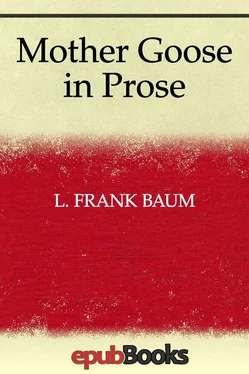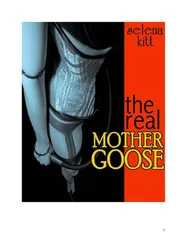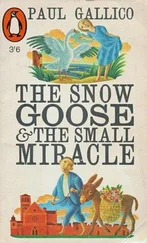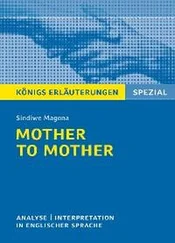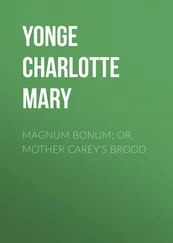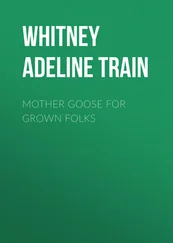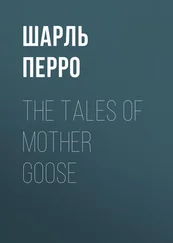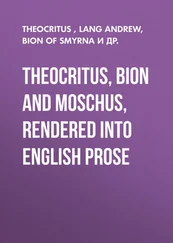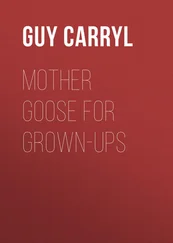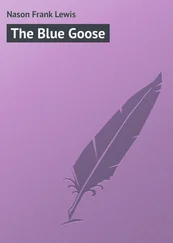Many of these nursery rhymes are complete tales in themselves, telling their story tersely but completely; there are others which are but bare suggestions, leaving the imagination to weave in the details of the story. Perhaps therein may lie part of their charm, but however that may be I have thought the children might like the stories told at greater length, that they may dwell the longer upon their favorite heroes and heroines.
For that reason I have written this book.
In making the stories I have followed mainly the suggestions of the rhymes, and my hope is that the little ones will like them, and not find that they interfere with the fanciful creations of their own imaginations.
L Frank Baum
Chicago, Illinois, September, 1897.
Sing a song o' sixpence, a handful of rye,
Four–and–twenty blackbirds baked in a pie;
When the pie was opened the birds began to sing,
Was not that a dainty dish to set before the King?
If you have never heard the legend of Gilligren and the King's pie, you will scarcely understand the above verse; so I will tell you the whole story, and then you will be able to better appreciate the rhyme.
Gilligren was an orphan, and lived with an uncle and aunt who were very unkind to him. They cuffed him and scolded him upon the slightest provocation, and made his life very miserable indeed. Gilligren never rebelled against this treatment, but bore their cruelty silently and with patience, although often he longed to leave them and seek a home amongst kinder people.
It so happened that when Gilligren was twelve years old the King died, and his son was to be proclaimed King in his place, and crowned with great ceremony. People were flocking to London from all parts of the country to witness the festivities, and the boy longed to go with them.
One evening he said to his uncle,
"If I had sixpence I could make my fortune."
"Pooh! nonsense!" exclaimed his uncle, "a sixpence is a small thing. How then could you make a fortune from it?"
"That I cannot tell you," replied Gilligren, "but if you will give me the sixpence I will go to London, and not return until I am a rich man."
"The boy is a fool!" said his uncle, with anger; but the aunt spoke up quickly.
"Give him the money and let him go," she said, "and then we shall be well rid of him and no longer be obliged to feed and clothe him at our expense."
"Well," said her husband, after a moment's thought, "here is the money; but remember, this is all I shall ever give you, and when it is gone you must not come to me for more."
"Never fear," replied Gilligren, joyfully, as he put the sixpence in his pocket, "I shall not trouble you again."
The next morning he cut a short stick to assist him in walking, and after bidding goodbye to his uncle and aunt he started upon his journey to London.
"The money will not last him two days," said the man, as he watched Gilligren go down the turnpike road, "and when it is gone he will starve to death."
"Or he may fall in with people who will treat him worse than we did," rejoined the woman, "and then he 'll wish he had never left us."
But Gilligren, nothing dismayed by thoughts of the future, trudged bravely along the London road. The world was before him, and the bright sunshine glorified the dusty road and lightened the tips of the dark green hedges that bordered his path. At the end of his pilgrimage was the great city, and he never doubted he would find therein proper work and proper pay, and much better treatment than he was accustomed to receive.
So, on he went, whistling merrily to while away the time, watching the sparrows skim over the fields, and enjoying to the full the unusual sights that met his eyes. At noon he overtook a carter, who divided with the boy his luncheon of bread and cheese, and for supper a farmer's wife gave him a bowl of milk. When it grew dark he crawled under a hedge and slept soundly until dawn.
The next day he kept steadily upon his way, and toward evening met a farmer with a wagon loaded with sacks of grain.
"Where are you going, my lad?" asked the man.
"To London," replied Gilligren, "to see the King crowned."
"Have you any money?" enquired the farmer.
"Oh yes," answered Gilligren, "I have a sixpence."
"If you will give me the sixpence," said the man, "I will give you a sack of rye for it."
"What could I do with a sack of rye?" asked Gilligren, wonderingly.
"Take it to the mill, and get it ground into flour. With the flour you could have bread baked, and that you can sell."
"That is a good idea," replied Gilligren, "so here is my sixpence, and now give me the sack of rye."
The farmer put the sixpence carefully into his pocket, and then reached under the seat of the wagon and drew out a sack, which he cast on the ground at the boy's feet.
"There is your sack of rye," he said, with a laugh.
"But the sack is empty!" remonstrated Gilligren.
"Oh, no; there is some rye in it."
"But only a handful!" said Gilligren, when he had opened the mouth of the sack and gazed within it.
"It is a sack of rye, nevertheless," replied the wicked farmer, "and I did not say how much rye there would be in the sack I would give you. Let this be a lesson to you never again to buy grain without looking into the sack!" and with that he whipped up his horses and left Gilligren standing in the road with the sack at his feet and nearly ready to cry at his loss.
"My sixpence is gone," he said to himself, "and I have received nothing in exchange but a handful of rye! How can I make my fortune with that?"
He did not despair, however, but picked up the sack and continued his way along the dusty road. Soon it became too dark to travel farther, and Gilligren stepped aside into a meadow, where, lying down upon the sweet grass, he rolled the sack into a pillow for his head and prepared to sleep.
The rye that was within the sack, however, hurt his head, and he sat up and opened the sack.
"Why should I keep a handful of rye?" he thought, "It will be of no value to me at all."
So he threw out the rye upon the ground, and rolling up the sack again for a pillow, was soon sound asleep. When he awoke the sun was shining brightly over his head and the twitter and chirping of many birds fell upon his ears. Gilligren opened his eyes and saw a large flock of blackbirds feeding upon the rye he had scattered upon the ground. So intent were they upon their feast they never noticed Gilligren at all.
He carefully unfolded the sack, and spreading wide its opening threw it quickly over the flock of black birds. Some escaped and flew away, but a great many were caught, and Gilligren put his eye to the sack and found he had captured four and twenty. He tied the mouth of the sack with a piece of twine that was in his pocket, and then threw the sack over his shoulder and began again his journey to London.
"I have made a good exchange, after all," he thought, "for surely four and twenty blackbirds are worth more than a handful of rye, and perhaps even more than a sixpence, if I can find anyone who wishes to buy them."
He now walked rapidly forward, and about noon entered the great city of London.
Gilligren wandered about the streets until he came to the King's palace, where there was a great concourse of people and many guards to keep intruders from the gates.
Seeing he could not enter from the front, the boy walked around to the rear of the palace and found himself near the royal kitchen, where the cooks and other servants were rushing around to hasten the preparation of the King's dinner.
Gilligren sat down upon a stone where he could watch them, and laying the sack at his feet was soon deeply interested in the strange sight. Presently a servant in the King's livery saw him and came to his side.
Читать дальше
